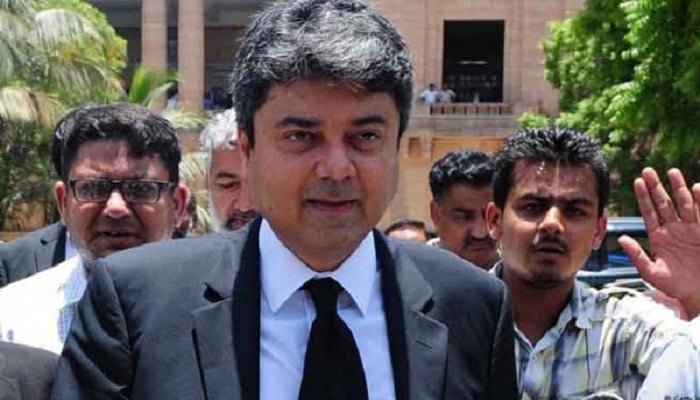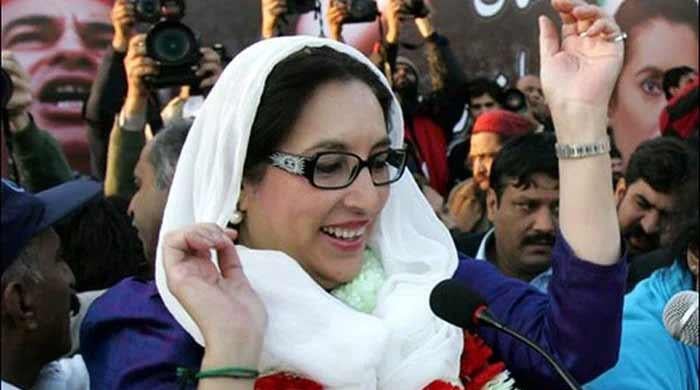Supreme Court has declared public hangings un-Islamic and unconstitutional: Naseem
Farogh Naseem says if anyone disagrees with SC order, they should petition court for review
February 12, 2020

LONDON: Minister for Law Farogh Naseem on Wednesday said that public hangings were un-Islamic and unconstitutional according to a top court order issued in 1994.
"I have never said the capital punishment should be abolished. A 1994 order of the Supreme Court contends that public hangings are against the Islamic law and the Constitution of Pakistan," he said while talking to reporters in London about a number of issues.
Also read: Law Minister Farogh Naseem resigns
"I only said that I will never make a law that goes against the teachings of Islam and the Constitution of Pakistan. If anyone disagrees with what I said, they can take up the 1994 order of the top court and ask for a review into it," the law minister said.
The National Assembly had last week approved, with a sizable majority, a resolution demanding public hanging for rapists of minors. Minister of State for Parliamentary Affairs Ali Mohammad Khan tabled the resolution.
Also read: Farogh Naseem says federal govt may take administrative control of Karachi
The resolution stated that rapists of children should be awarded the death penalty and executed publicly. The Pakistan Peoples Party objected to the resolution, and two government ministers also formally came out against the resolution on social media.
'Government will work according to the law'
Naseem, who is London, spoke to reporters about a host of issues that Pakistan faced, including economic problems, political issues, occupied Kashmir, food crisis, and the speculation surrounding the departure of Maryam Nawaz from Pakistan.
"If the high court permits Maryam Nawaz to go to London, we will approach the Supreme Court in this regard," Naseem said, adding that the grounds on which Nawaz had petitioned the court to remove her name from a no-fly list did not exist in law.
Also read: Farogh Naseem returns to cabinet three days after resignation
"The government will work according to the law. If Shehbaz Sharif was allowed to travel abroad, it was not the government that issued the order allowing him to do so, but the court," Naseem noted, referencing the court order that had allowed Shehbaz to leave the country on bail.
'Economy on right track'
Naseem also dismissed speculation that the government had developed differences with allied parties, reaffirming that all the allies of the PTI-led government were standing by Prime Minster Imran Khan, who had taken tough decisions on the economy.
Also read: Shehbaz can be held in contempt of court if Nawaz doesn't return: Farogh Naseem
"When we came into the government, the economic conditions were very bad. We had to ask the International Monetary Fund for bailout money in order to pay back previous loans and the interest on them," he said.
"Now the economy is on the right track and improving for the better. Not everything is perfect, but the government is trying to hard to improve things. Those spreading rumors do not want corruption to end," he added.









